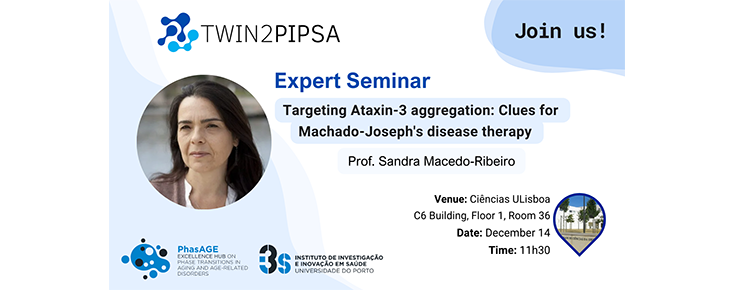
Por Sandra Macedo-Ribeiro (Group Leader of the Biomolecular Structure & Function Lab at i3S - Instituto de Investigação e Inovação em Saúde da Universidade do Porto).
Spinocerebellar Ataxia type 3 (SCA3) is a rare dominant neurodegenerative hereditary ataxia. SCA3 is caused by the expansion of a trinucleotide CAG repeat in the ATXN3 gene, which leads to the formation of an expanded polyglutamine (polyQ) tract in the ataxin-3 protein (Atx3). In SCA3, protein aggregates with the pathogenic polyQ-expanded Atx3 accumulate in degenerating brain regions, resulting in symptoms of the disease. The exact cause of neurotoxicity is still being debated, but abnormal aggregation of pathogenic Atx3 contributes to neuronal damage in SCA3 and other polyQ disorders. Our team has identified various molecules that target aberrant Atx3 self-assembly, and the impact of these studies in uncovering new clues for disease-modifying therapies for SCA3 will be discussed.

